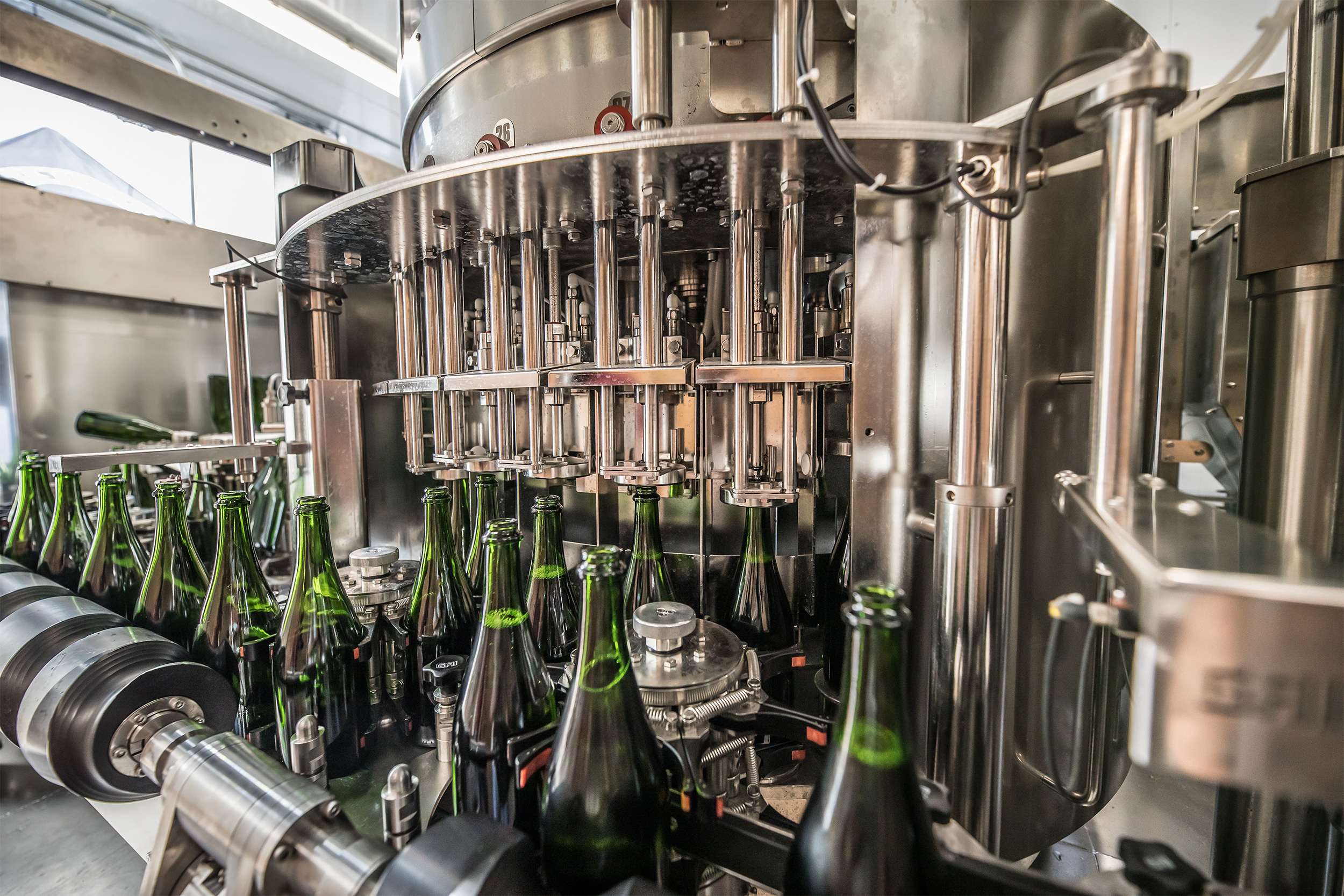
Services
Our service driven company can produce a vast range of sparkling and carbonated beverages. This includes non and low alcohol products that don’t have to be made from grapes. Under pressure (pun intended) from fruit to finished product, we have the experience, knowledge and resources to help you create a great product.
-
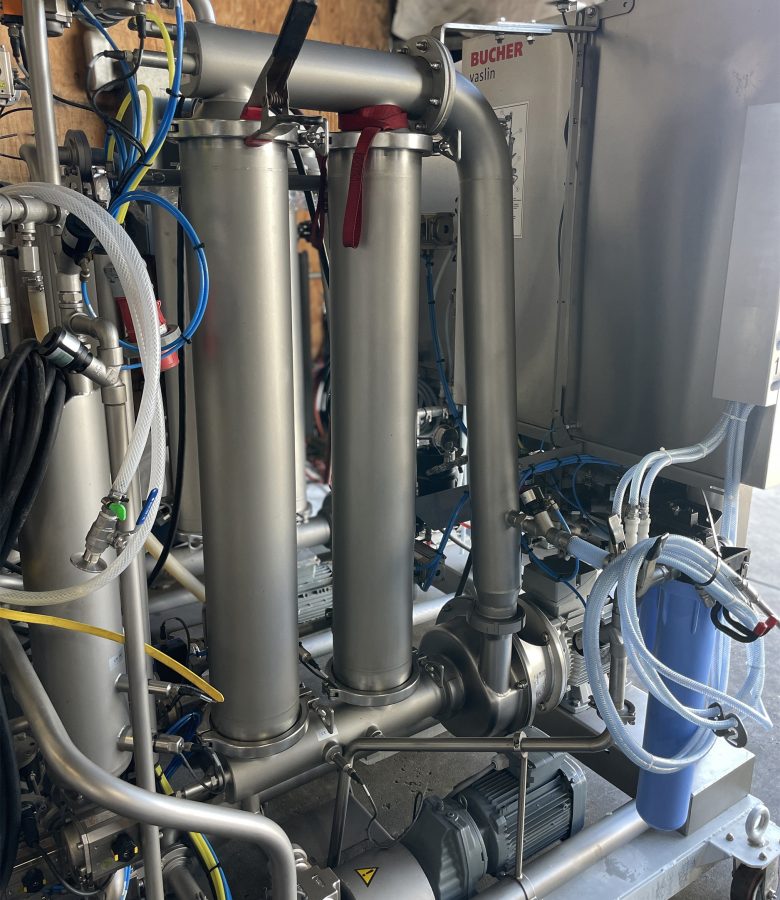
Counter Pressure Cross Flow Filtration
- Once on the counter pressure filler, the bottle is first sealed by the filling valve gasket.
- Depending on the product, a vacuum is created inside the bottle. Air, mainly oxygen and nitrogen, is removed from the bottle. This pre-evacuation can be performed twice to eliminate the oxygen for a longer shelf life.
- The bottle is pressurized with CO2 to remove any additional O2, and then the bottle is pressurized to the same levels as the carbonated product.
- A filling valve is opened to allow the carbonated product to flow into the bottle without any gas escaping. Because the bottle remains pressurized during the filling, foaming or gushing is kept to a minimum.
- After the bottle is filled to the desired volume, the remaining pressure is slowly released through a vent, allowing it to equalize to atmospheric conditions.
- The filled bottle, with relaxed or slightly foaming product, receives a closure that helps retain the carbonation.
-
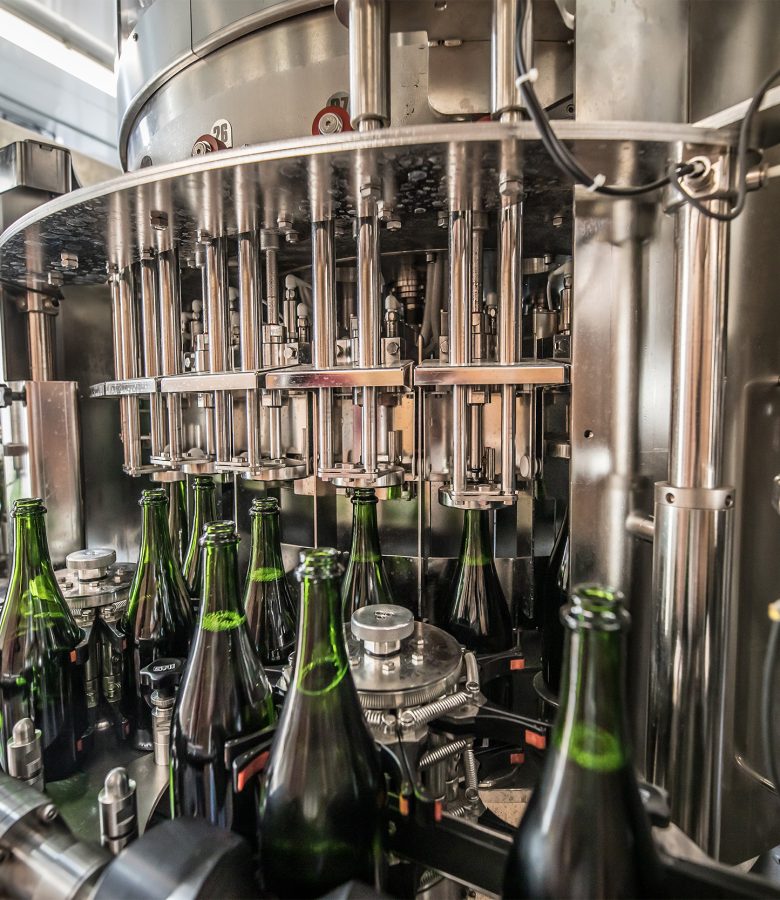
Counter Pressure Bottling
-
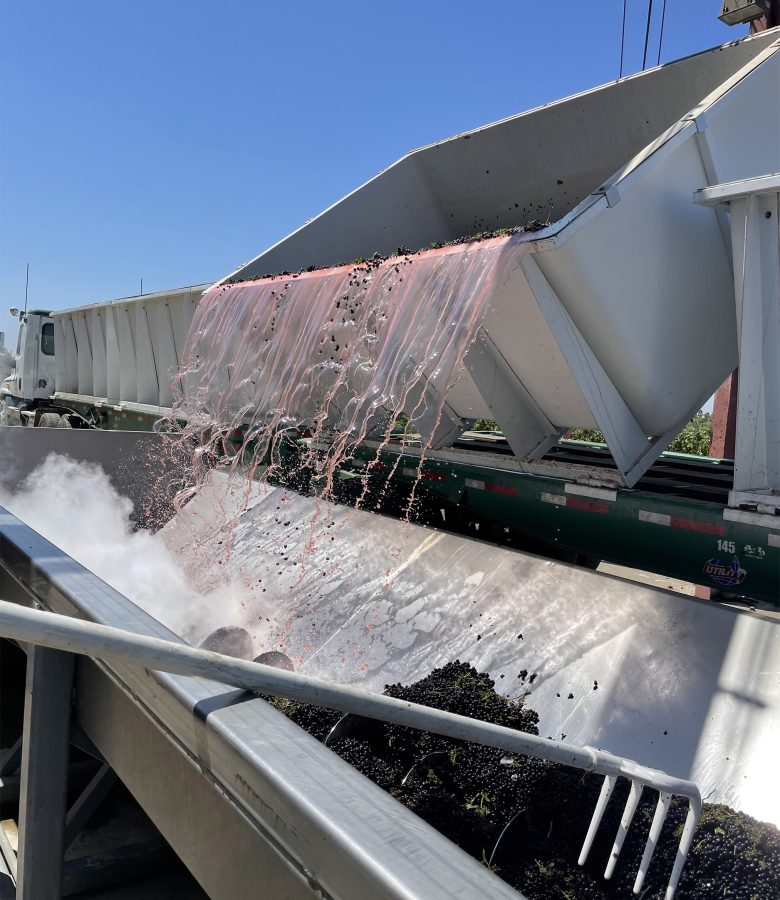
Custom Crush
- Streamlined wine production
- Grape-to-bottle processing, formulating, bottling and storage
-
Consultation Services
- Grape, bulk juice and wine sourcing
- Processing and other winemaking protocols
- Wide range of stylistic options
- Container and closure selections
- Ingredient blending services
- Dedicated, experienced staff that’s ready to serve
- Alternating Proprietorships (AP) available
- Regulatory compliance
-
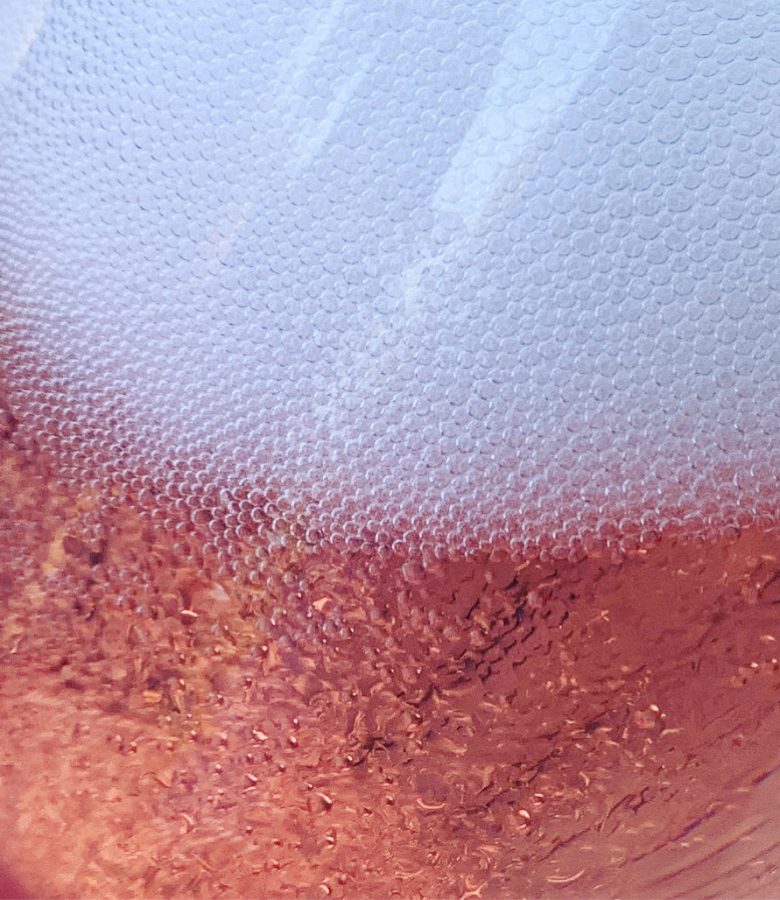
Forced Carbonated Beverages
-
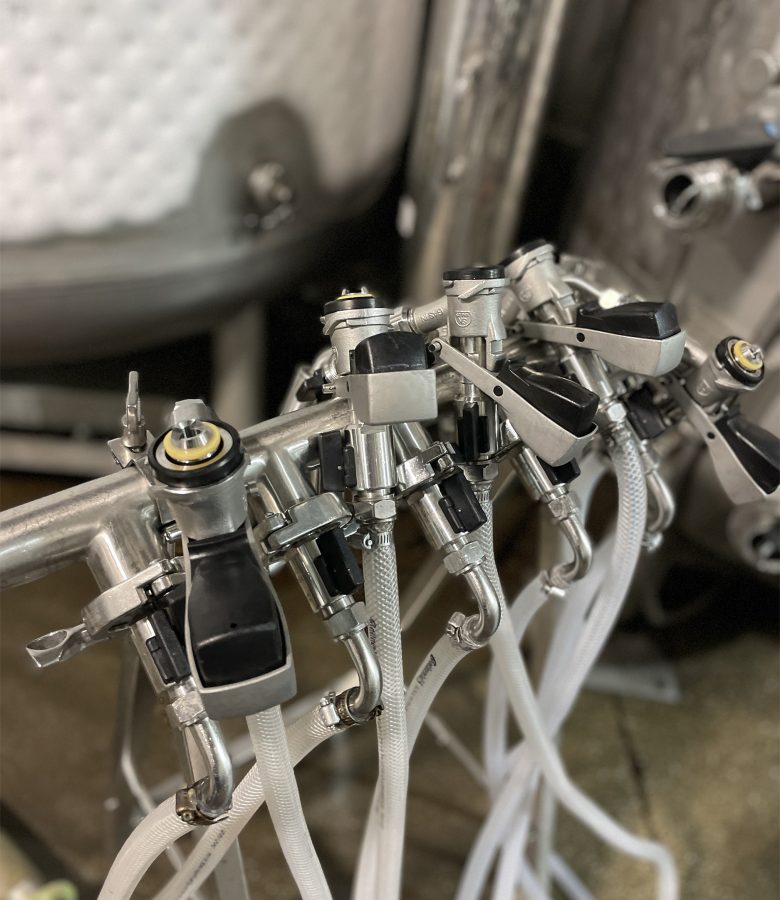
Kegging and Canning
-
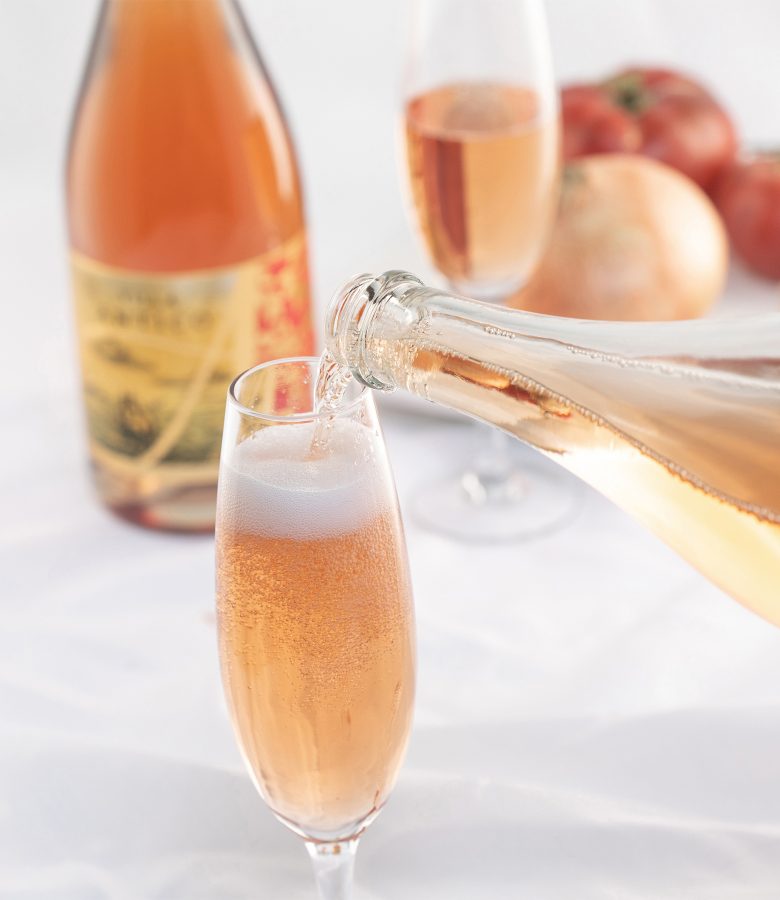
Pétillant Naturel
-
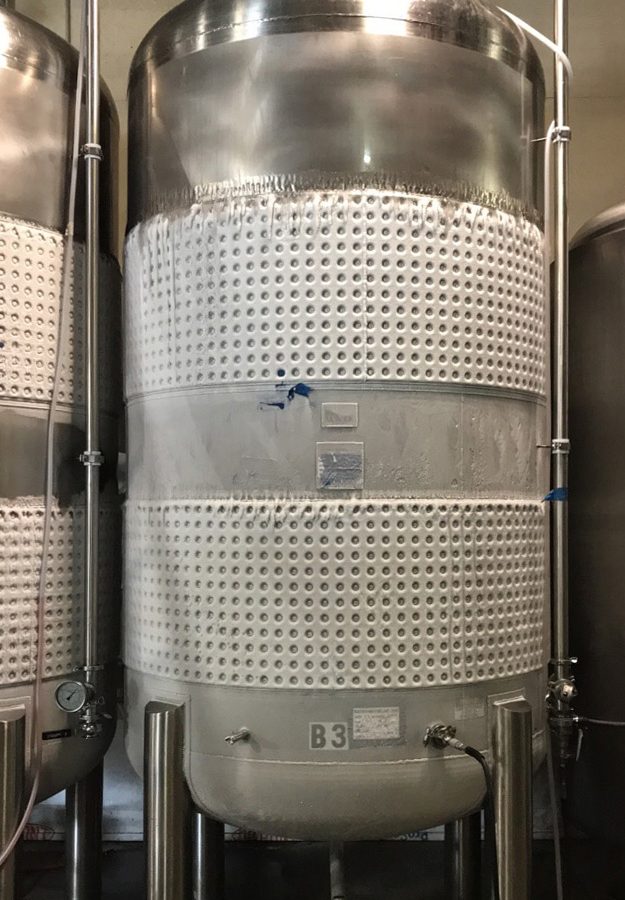
Tank Fermented Sparkling
-
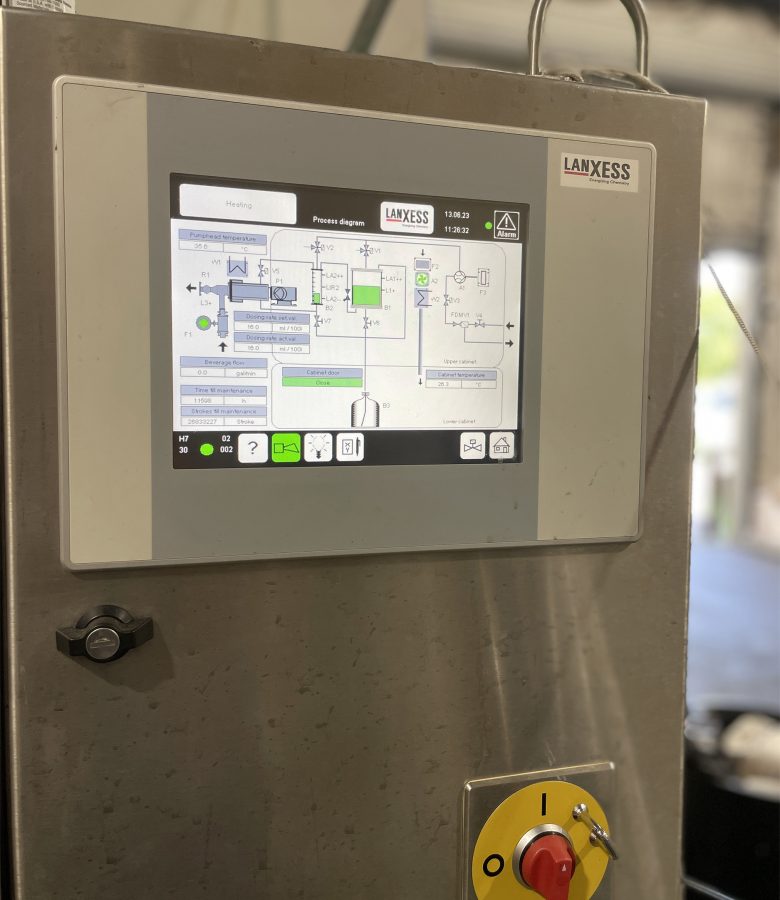
Velcorin Dosing
- Reduction or elimination of beverage filtration
- Prevention of re-fermentation in the beverage container
- Reduction or elimination of sulfur dioxide (SO2 or sulfites)
- Microbial stabilization of bulk wine, cider and other bottled beverages
- Ceases or inhibits yeast fermentation
- Replaces potassium sorbate and other microbial inhibitors or preservatives

Counter Pressure Cross Flow Filtration
A counter pressure or isobaric bottle filler works by maintaining constant CO2 pressure levels as bottles are filled. This allows products from either pressurized or non-pressurized bulk storage tanks or vessels to be used without losing carbonation or picking up atmospheric gasses such as oxygen. Most carbonated beverages are bottled at temperatures ranging from 0 to 4C (32° to 39.2°F).
Here’s the counter pressure filling process:

Counter Pressure Bottling
In crossflow filtration, beverages pass tangentially across a membrane with a known porosity. As the product flows across the membrane surface, filtrate passes through while concentrate accumulates at the opposite end of the membrane. The tangential flow of the membrane creates a shearing effect on the surface of the membrane, which in turn reduces fouling or plugging. Crossflow is a continuous rather than batch process. The Bucher Cross Flow Filter used at Creative Carbonation is designed to operate under constant pressure or isobarically. Wines with high levels of CO2 can be filtered with minimal losses while yielding very high clarity and microbial stability.

Custom Crush

Forced Carbonated Beverages
For a less complicated, less expensive bubbly product, we can add CO2 directly from a carbonation source. This method can be used to incorporate various levels of CO2, from a light spritz to an actively effervescent host of products including wines, ciders, teas and juices. With this production capability, almost any beverage can benefit from the addition of bubbles.

Kegging and Canning
We have the equipment and the ability to fill both one way Unikegs and Keykegs. We can keg both still and carbonated products up to 7 g/L of pressure. We use mobile canning lines from our long time partners, with the equipment choices determined by the type of product produced.

Pétillant Naturel
This French term roughly translates to “naturally sparkling” and is considered the oldest manner for crafting sparkling wine. There are two distinct approaches for making this style of sparkling wine. The first is accomplished by bottling the product just prior to the completion of the primary fermentation. The residual sugar is fermented by the yeast to produce CO2 which is trapped in the sealed bottle.
The second approach utilizes grape juice added to a wine that has been fermented to dryness. Here the sugar from the additional juice is fermented to generate the bubbles. The innumerable variations (i.e., pressure, color, clarity, sweetness and varieties) for Pétillant Naturel wines gives the producer the ability to craft something unique for their brand. With recent advances in winemaking science and technology, Creative Carbonation has been able to create a newer, more refined version of this type of sparkling wine.

Tank Fermented Sparkling
Cuve Close is French for “sealed tank” and a name for the bulk or tank sparkling wine-making process often called Charmat. This process was originally developed by an Italian and later refined by the French and involves provoking a second fermentation in a sealed tank capable of withstanding pressures up to 6 Bar, or 90 psi. During this second fermentation, the carbon dioxide (CO2) produced by the yeast is prevented from escaping, and entrains or saturates the wine. Upon completion of the secondary fermentation, the yeast is filtered and the wine containing the dissolved CO2 is transferred into bottles without losing the pressure, aromas or flavor generated by the second fermentation. The duration of this fermentation can vary from days to weeks or months, but the process generates sparkling wine at a lower cost than traditional sparkling wine methods.

Velcorin Dosing
VELCORIN® is the trade name for dimethyldicarbonate (DMDC), a microbial control agent. VELCORIN has been used in the U.S. since 1988. It is approved for use in wine, low-alcohol wine, non-alcoholic wine, cider, juice, juice sparklers, sports drinks and ready-to-drink teas. VELCORIN is very effective at low dosages against a broad range of yeast, bacteria and molds. Unlike other chemical preservatives, VELCORIN is non-persistent and does not affect taste, aroma or color. VELCORIN can remain active for several hours, thereby helping to eliminate contamination from other sources such as bottles, closures and filling equipment.
VELCORIN Benefits:
Get Started
Are you ready to begin your journey to producing a great carbonated beverage? Answer just a few questions to let us know what it is you’re producing, how much you need and how we can make the experience the best you ever have. And don’t worry, if you’ve never done this before, we’ll be there every step of the way!